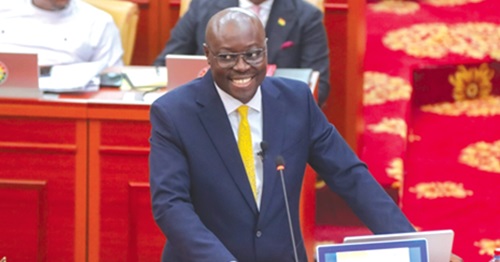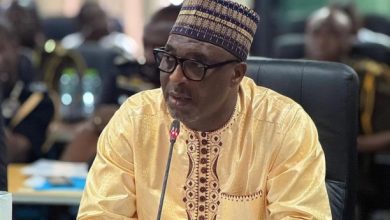
The fiscal and economic experts are better placed to unpack the mid-year budget review and what the numbers mean for the economic and fiscal health of the country.
Nonetheless, budgets are more than just numbers about what a government expects to receive and spend or what it hopes the country’s economic and fiscal health will look like over a given time horizon. Budgets also signal to citizens, government’s priorities and how it intends to fiscally govern the country.
In perusing the mid-year fiscal policy review of the budget document, here are a few things that caught my attention.
Payroll audit
First, the payroll audit and its goal of solving this perennial problem of “ghost names” on government payroll are a step in the right direction.
As noted in the budget review, the Ghana Audit Service has made considerable progress 91 per cent complete in auditing government payroll across the 16 regions.
One of the early revelations is how much the continuous payment of salaries to separated staff cost (Ghs150.4 million) government in the two previous fiscal years.
And this is just one of the categories of “ghost workers” that plague government’s payroll.
There have been various attempts over the years by different governments to address this, but it persists.
The National Service Authority payroll scandal is still fresh on our minds.
The audit effort is therefore commendable, and it is my fervent hope that the findings will be implemented with the same eagerness with which it was conducted.
Keeping in mind that for FY 2025, 25 per cent of government expenditure was budgeted for wages and salaries, a sanitised government payroll can only have positive effects for the country’s fiscal health.
Bond market
Second, the decision to reopen the domestic bond market to finance the budget deficit came with an important announcement- the selection of new bookrunners to assist the government.
It raises the question whether there is dissatisfaction with the currently approved book runners.
While not questioning the soundness of the government decisions, I am curious to know what prompted it.
At the end of the day, it is the fiscal health of the country that matters and whoever the government selects must be well-positioned to serve it well.
Third is the macroeconomic framework and the government’s targets for the rest of the fiscal year.
Even though some of the latest indicators (consumer inflation, producer price inflation, currency appreciation, etc.) are on a positive trajectory, there was no revision of the targets.
The government’s caution is instructive because it suggests that moving from recovery to stability and eventual growth takes time even as it makes prudent policy choices to get the country there.
Fourth, in Point 422, the government makes this point: “Mr Speaker, the additional revenue of GH¢2.9 billion will come from the increase in revenues from the amendment to the Energy Sector Levies Act.”
In June, when the government announced its intention to amend the Energy Sector Levies Act, the policy rationale provided was to address the crippling debt facing the sector. I raise this point to serve as a friendly reminder that this increased revenue is for a specific purpose.
As I wrote back in June, my hope is that a future government would not call upon citizens to make another sacrifice to help alleviate energy sector debts.
Performance
Fifth, in the sectoral performance review, the government once again reiterates its commitment to the Free Senior High School (Free SHS) programme.
The government’s continued commitment to the programme, in my opinion, points to the dangers of policy distortion during electoral campaigns.
Those determined to engage in policy distortion as part of election campaigns will not stop.
However, it is always up to the voters to decide whether to reward policy distortion with their vote or not. But in order to determine whether a particular candidate’s policy is being distorted or not requires voters to do their own independent verification during any campaign season.
Cocoa sector
Sixth, the cocoa sector is mentioned again for the fiscal risks it poses to the Ghanaian economy, not forgetting its current total debt (GH¢32 billion). In April, the Minister for Finance had this to say, “we need to pay attention to the energy and cocoa sector.”
There has been some progress in the energy sector with the amendment to the Energy Sector Levies Act.
Continuing to sound the alarm about the cocoa sector is necessary.
However, some active steps are needed, and this is where I raise again the COCOBOD Turnaround strategy that was promised as part of the IMF programme.
Perhaps it can serve as a good starting point depending on what preparatory work was handed over to this new government by the previous government.
Overall, the budget makes clear the government’s determination to address the country’s economy and other fiscal challenges.
The writer is the Director, Democracy Project



